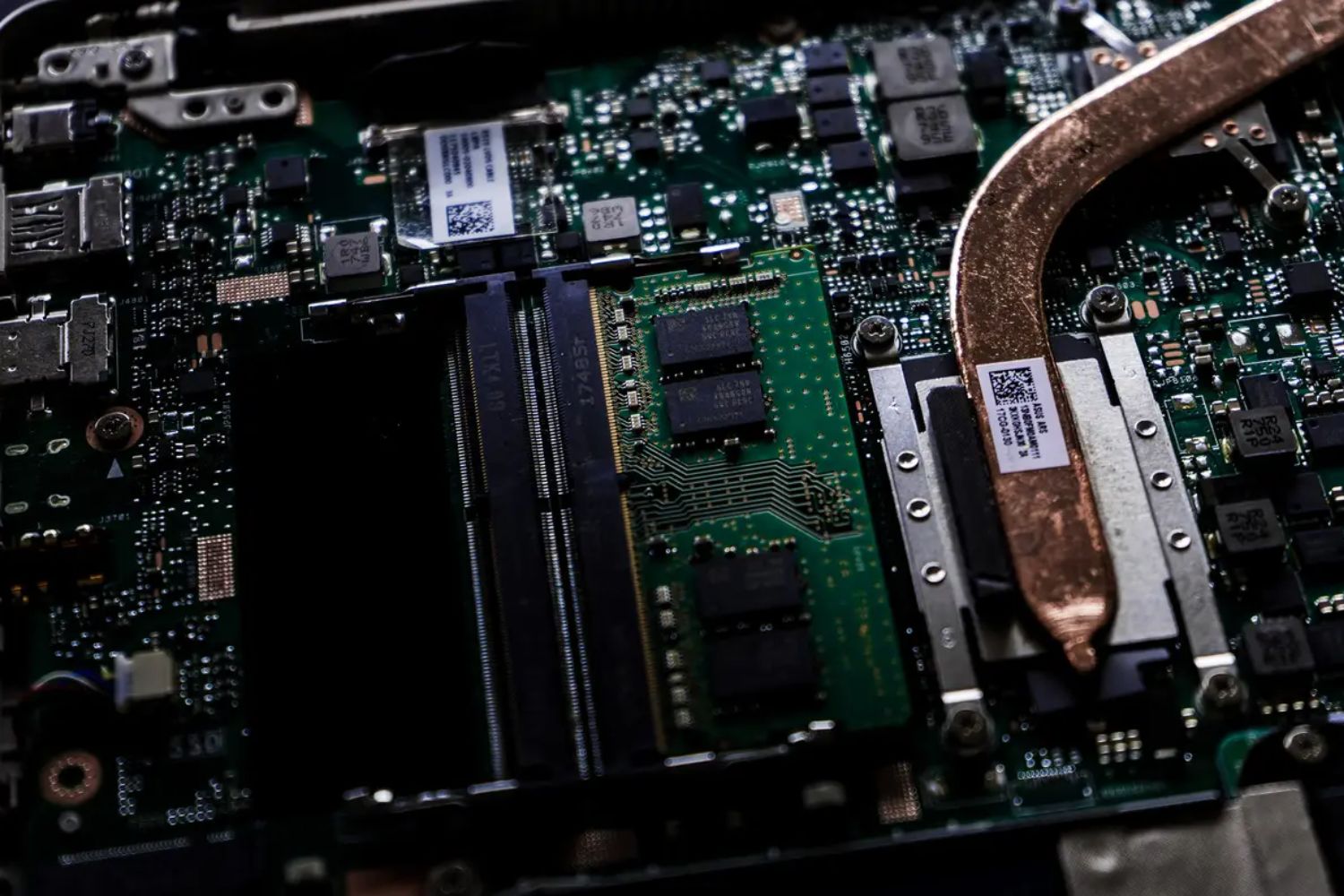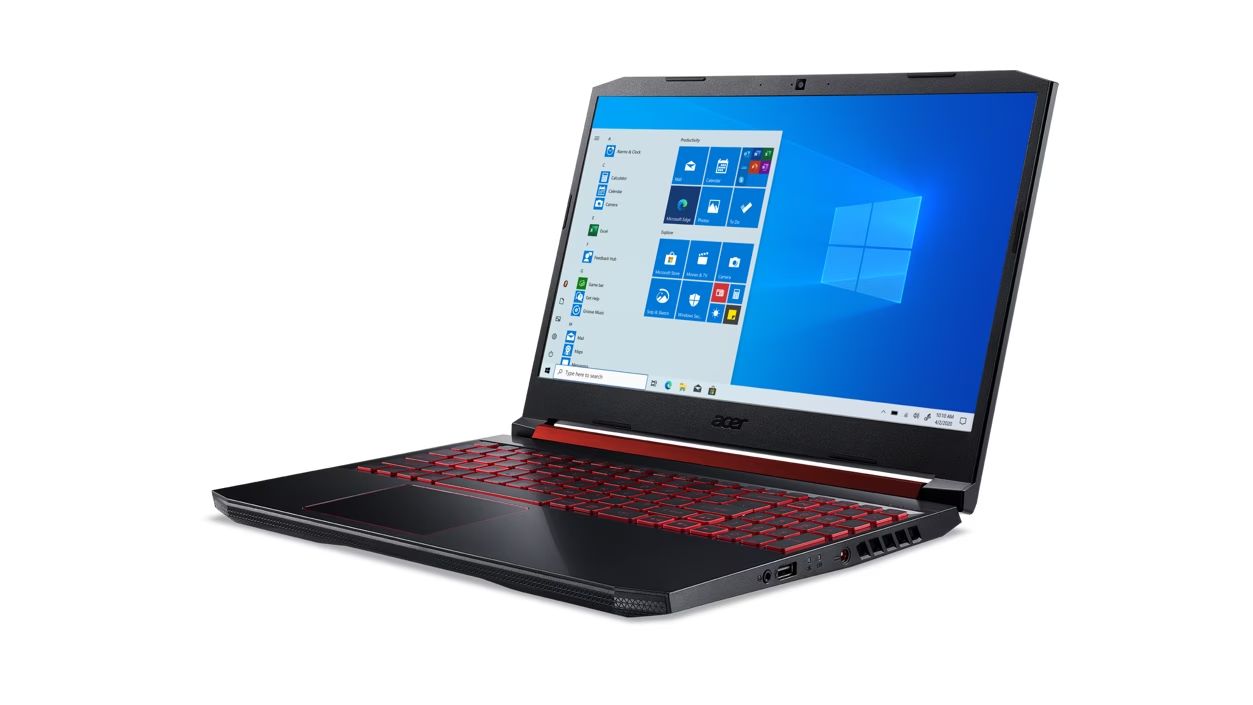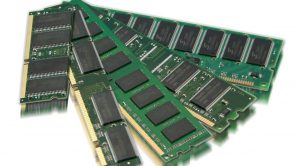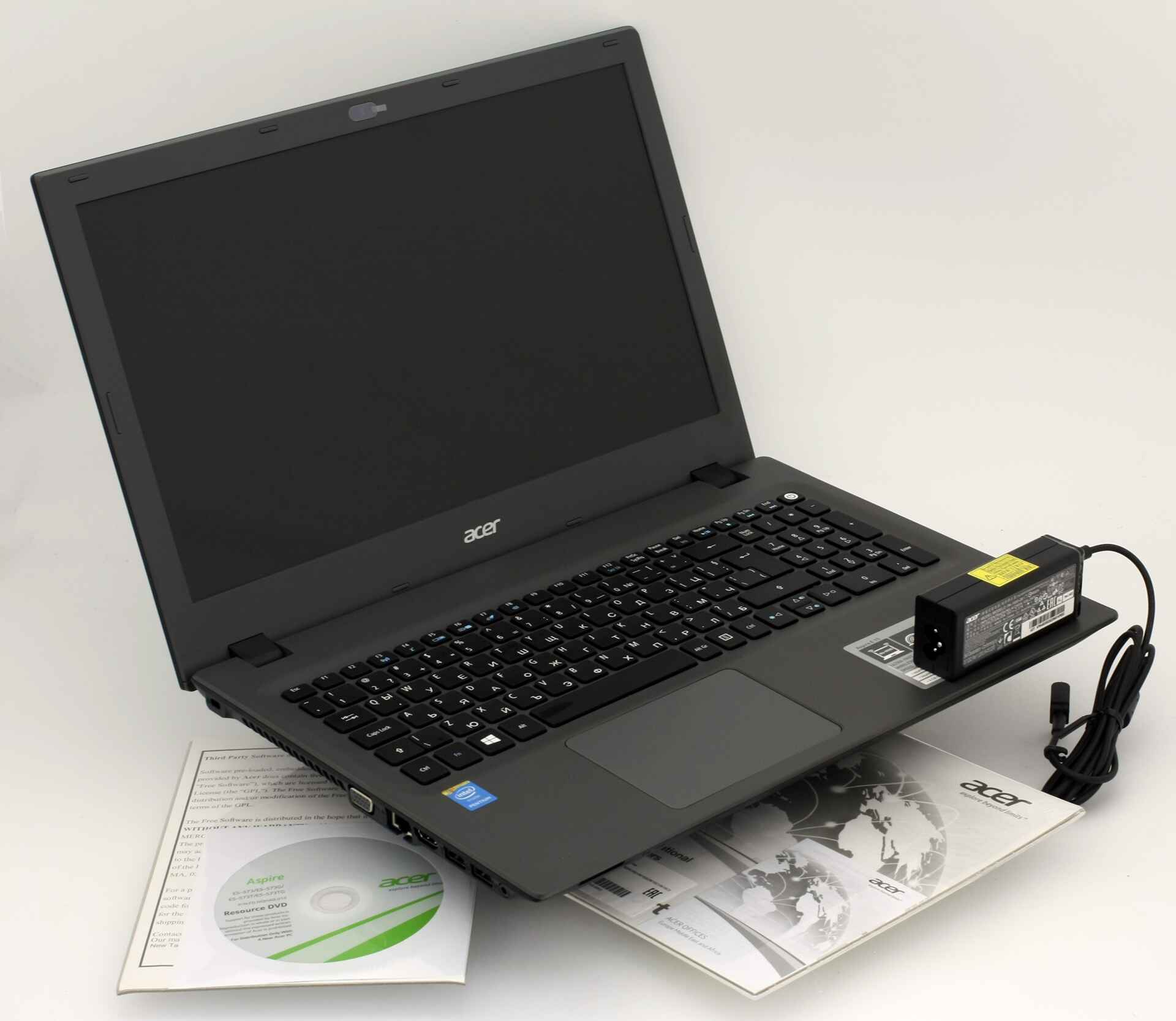Introduction
Welcome to the world of gaming laptops, where power and performance are crucial for an optimal gaming experience. One of the key components that determine a laptop’s gaming prowess is its RAM, or Random Access Memory. RAM plays a vital role in ensuring smooth gameplay, fast load times, and seamless multitasking. In this article, we will explore the importance of RAM in gaming laptops and discuss the minimum and recommended requirements based on your gaming needs.
RAM is a type of computer memory that provides temporary storage and quick access to data that the CPU (Central Processing Unit) requires to perform tasks. In the context of gaming, RAM is responsible for storing and quickly retrieving game data, such as textures, audio files, and virtual environments. The more RAM a laptop has, the more data it can store and access, resulting in faster and smoother gameplay.
When it comes to gaming, having an adequate amount of RAM is essential. Insufficient RAM can cause frame rate drops, lag, and longer loading times, which can greatly diminish the overall gaming experience. It is important to note that while RAM is crucial, it is not the only determining factor of a gaming laptop’s performance. Other components like the CPU, graphics card, and storage also contribute significantly.
Now that we understand the role of RAM in gaming laptops, let’s delve into the minimum RAM requirements necessary for a decent gaming experience. Keep in mind that these requirements may vary based on the game and its system requirements, so it’s always a good idea to consult the game’s official recommendations.
What is RAM?
RAM, or Random Access Memory, is a vital component of any computer system, including gaming laptops. It is a type of volatile memory that allows the computer to store and access data quickly. Unlike the computer’s hard drive, which provides long-term storage, RAM provides temporary storage that enables the CPU to access data quickly.
Think of RAM as your laptop’s working memory. It acts as a bridge between the CPU and the data stored on the hard drive. When you launch a game on your laptop, the necessary files and data are loaded into the RAM so that the CPU can access them swiftly. The more RAM your laptop has, the more data it can hold, reducing the need to continuously access the slower hard drive for information.
RAM is made up of memory modules, usually in the form of small circuit boards with chips on them. These modules are inserted into slots on the motherboard of your laptop. The capacity of RAM is measured in gigabytes (GB), and higher capacities allow for more data to be stored and accessed simultaneously.
It’s important to note that RAM is volatile, which means it requires a constant supply of power to retain data. When you turn off your laptop, the data stored in RAM is lost. This is why it’s essential to save your work before shutting down to avoid losing any unsaved data.
In the case of gaming laptops, RAM plays a crucial role in providing a smooth gaming experience. It allows your laptop to load and store game assets, such as textures, models, and audio files, which are essential for rendering the game world and delivering a seamless gaming experience. When you have sufficient RAM, your laptop can handle demanding games without performance bottlenecks, ensuring smooth gameplay and reducing lag.
Now that we understand what RAM is and its importance in gaming, let’s explore the minimum RAM requirements for gaming laptops, so you can make an informed decision when choosing your ideal gaming machine.
Importance of RAM in Gaming Laptops
RAM plays a critical role in determining the performance and overall gaming experience on a gaming laptop. It directly affects how smoothly games run, how quickly they load, and how well your laptop can handle multitasking while gaming. Let’s delve into the key reasons why RAM is so important for gaming laptops:
1. Smooth Gameplay: When you launch a game, it loads various game assets into RAM for quick access by the CPU. The more RAM you have, the more game assets can be stored, resulting in faster and smoother gameplay. With sufficient RAM, your laptop can handle rendering complex graphics, processing game physics, and executing AI algorithms, allowing for a fluid gaming experience without lag or frame rate drops.
2. Faster Load Times: Loading times can be a common frustration for gamers. RAM helps to minimize this annoyance by storing game files and data, allowing for faster access when needed. With faster load times, you can jump into the action quicker and spend more time gaming rather than waiting for the game to load.
3. Multitasking Capability: Gaming laptops often serve as multipurpose devices, used for more than just gaming. RAM enables seamless multitasking, allowing you to run multiple applications simultaneously without impacting gaming performance. From streaming gameplay to chatting with friends or editing videos, having adequate RAM ensures that your laptop can handle these tasks without compromising on gaming performance.
4. Future-Proofing: Investing in a gaming laptop with ample RAM ensures that your device will be capable of accommodating more demanding games in the future. As game graphics become more advanced and resource-intensive, having sufficient RAM becomes increasingly important. By future-proofing your laptop with enough RAM, you can enjoy a smooth gaming experience for years to come without the need for immediate upgrades.
5. Customizability: Unlike other components of a gaming laptop, RAM can often be easily upgraded. This allows gamers to start with a basic RAM configuration and upgrade it later as their needs evolve or as more demanding games are released. Being able to upgrade the RAM gives you flexibility and the option to extend the lifespan of your gaming laptop without the need for a complete replacement.
To optimize your gaming experience, it is crucial to have sufficient RAM in your gaming laptop. The specific amount of RAM needed may vary depending on the game, but a minimum of 8GB is typically recommended for most modern games. For more demanding games or for those who engage in heavy multitasking, 16GB or even 32GB of RAM is advisable.
Now that we understand the importance of RAM in gaming laptops, let’s explore the minimum RAM requirements necessary for a decent gaming experience.
Minimum RAM Requirements for Gaming Laptops
When it comes to gaming laptops, having sufficient RAM is crucial for optimal performance. The minimum RAM requirements for gaming laptops vary depending on the game and its system requirements. However, as a general guideline, a minimum of 8GB of RAM is recommended for most modern games.
With 8GB of RAM, you can expect to run a wide range of games without major performance issues. This amount of RAM allows for smooth gameplay, faster load times, and the ability to multitask while gaming. It strikes a balance between performance and cost, making it an ideal starting point for many gamers.
However, it’s important to note that the specific RAM requirements can vary depending on the game and other factors like the CPU and graphics card. Some games, especially AAA titles or those with highly detailed graphics, may recommend or require more than 8GB of RAM for optimal performance.
If you are a casual gamer or primarily play older or less demanding games, 8GB of RAM should suffice. This capacity allows you to enjoy most games without encountering major performance bottlenecks. However, if you are a serious gamer or if you play more graphics-intensive games, consider opting for 16GB or even 32GB of RAM to future-proof your gaming laptop.
Games with higher system requirements, such as open-world RPGs or first-person shooters, tend to benefit from more RAM. The additional RAM allows for smoother gameplay, reduced lag, and improved overall performance. It also provides headroom for running other applications or processes in the background, such as game recording software or voice chat programs, without impacting gaming performance.
When considering the minimum RAM requirements for a gaming laptop, it’s essential to balance your needs and budget. While having more RAM can enhance your gaming experience, it may not be necessary if you primarily play less demanding games or engage in light multitasking.
Ultimately, the minimum RAM requirements for gaming laptops are constantly evolving as game developers push the boundaries of graphics and gameplay. It’s worth checking the recommended system requirements for specific games to ensure optimal performance. Additionally, keep in mind that RAM is just one component of a gaming laptop, and you should consider other factors like the CPU, graphics card, and storage to achieve the best gaming experience.
Now that we have covered the minimum RAM requirements, let’s explore the recommended RAM for gaming laptops to take your gaming experience to the next level.
Recommended RAM for Gaming Laptops
When it comes to gaming laptops, having more RAM can significantly enhance your gaming experience. While the minimum RAM requirements ensure that you can run most modern games, having recommended RAM capacity allows for smoother gameplay, faster load times, and improved multitasking capabilities.
For most gamers, a recommended RAM capacity of 16GB is ideal. This amount of RAM provides plenty of headroom for running even the most demanding games without experiencing performance bottlenecks. It allows for faster data access, reducing lag and ensuring smooth gameplay, especially when combined with a powerful CPU and graphics card.
With 16GB of RAM, you can handle intensive gaming sessions while simultaneously running other applications in the background. This is especially beneficial if you use voice chat programs, stream your gameplay, or record your gaming sessions. The extra RAM capacity ensures that these additional processes do not impact your gaming experience and maintain a seamless performance.
Furthermore, the recommended 16GB of RAM provides future-proofing for upcoming games that may have higher system requirements. As new games are released and graphics become more advanced, having more RAM will allow you to continue enjoying a smooth gaming experience without the need for immediate upgrades.
That being said, if you are a professional gamer, content creator, or engage in heavy multitasking while gaming, you may consider investing in a gaming laptop with 32GB of RAM. This higher capacity provides even more headroom for running resource-intensive applications and ensures optimal performance in any scenario.
However, it’s crucial to consider the overall cost-benefit ratio when selecting the recommended RAM capacity. While having more RAM can enhance your gaming experience, it may not provide a significant improvement if you primarily play less demanding games or engage in light multitasking. Evaluating your specific gaming needs and budget is key to making an informed decision.
It’s worth noting that upgrading RAM in a gaming laptop may not always be possible. Some laptops have non-upgradable RAM, meaning you need to choose the right RAM capacity at the time of purchase. Therefore, if you anticipate your gaming needs increasing in the future, it’s wise to select a laptop with more RAM capacity than you currently require.
In summary, the recommended RAM capacity for gaming laptops is 16GB, providing a balance between performance and cost. This amount of RAM ensures smooth gameplay, faster load times, improved multitasking capabilities, and future-proofing for upcoming games. However, it’s essential to assess your specific gaming needs and budget before finalizing your purchase decision.
Now that we have explored the recommended RAM capacity, let’s consider how the RAM requirements can vary based on different game genres.
RAM Considerations based on Game Genre
When it comes to gaming laptops, the RAM requirements can vary based on the specific game genre you enjoy playing. Different game genres have distinct characteristics and demands, which can influence the amount of RAM needed for optimal performance. Let’s explore some common game genres and their corresponding RAM considerations:
1. First-Person Shooters (FPS): FPS games are known for their fast-paced action and immersive gameplay. These games often feature detailed environments, high-resolution textures, and realistic physics. To ensure smooth gameplay in FPS games, a minimum of 8GB of RAM is typically recommended. However, to fully experience the graphical fidelity and maintain a competitive edge, upgrading to 16GB or even 32GB of RAM can enhance performance, especially in multiplayer scenarios where other players’ actions can put additional strain on your system.
2. Role-Playing Games (RPG): RPGs are known for their expansive worlds, intricate storylines, and character customization. These games often require higher RAM capacities due to the large amounts of data and assets that need to be loaded. For most RPG games, 8GB of RAM should provide a satisfactory experience. However, if you enjoy playing open-world RPGs with detailed environments and numerous NPCs, opting for 16GB of RAM ensures smoother gameplay and reduces loading times, particularly when exploring vast landscapes or engaging in complex NPC interactions.
3. Strategy Games: Strategy games, such as real-time strategy (RTS) or turn-based strategy (TBS) games, rely heavily on processing lots of data, managing AI opponents, and rendering detailed maps. These games can benefit from higher RAM capacities. For basic strategy games, 8GB of RAM should suffice. However, if you enjoy playing large-scale strategy games with extensive maps, complex AI, and advanced graphics, opting for 16GB or 32GB of RAM can provide smoother gameplay and quicker response times, allowing you to make strategic decisions without slowdowns.
4. Multiplayer Online Battle Arena (MOBA): MOBA games, like League of Legends or Dota 2, involve intense team-based battles and require quick reaction times and precise control. While MOBAs are less demanding in terms of system requirements compared to other genres, having at least 8GB of RAM ensures smooth gameplay, especially during team fights where multiple abilities and effects are rendered simultaneously. Upgrading to 16GB of RAM can provide additional stability and fluidity, reducing any potential lag or stuttering when playing online with other players.
5. Racing Games and Sports Simulations: Racing games and sports simulations rely heavily on smooth animations, realistic physics, and detailed environments. These games tend to be more graphics-intensive, emphasizing the need for a powerful GPU. While RAM is still important for overall system performance, a minimum of 8GB of RAM should be sufficient for most racing and sports games. However, if you plan to play with the highest graphics settings or utilize mods that enhance visual fidelity, upgrading to 16GB of RAM can help maintain a stable frame rate and deliver a more immersive experience.
Remember that these recommendations are general guidelines based on typical game requirements. It’s essential to check the system requirements of specific games you plan to play to ensure you have the right amount of RAM for optimal performance. Additionally, keep in mind that RAM is just one component of a gaming laptop, and balancing it with other factors like the CPU and graphics card is crucial for a well-rounded gaming system.
Now that we have considered RAM considerations based on different game genres, let’s explore the possibilities of upgrading RAM in gaming laptops.
Upgrading RAM in Gaming Laptops
One of the advantages of gaming laptops is the ability to upgrade certain components, including RAM. Upgrading RAM can be a cost-effective way to improve performance, extend the lifespan of your gaming laptop, and adapt to the increasing demands of modern games. Here are some considerations for upgrading RAM in gaming laptops:
1. Compatibility: Before upgrading the RAM in your gaming laptop, it’s crucial to ensure compatibility with your specific model. Check the laptop’s user manual or consult the manufacturer’s website to determine the type and maximum capacity of RAM supported by your laptop. Typically, gaming laptops use DDR4 RAM, but some older models may require DDR3. Additionally, check if your laptop has available RAM slots for adding additional modules.
2. Determine the Current RAM Configuration: Find out the current RAM configuration of your gaming laptop, including the capacity and speed of the installed modules. This information will help you determine how much additional RAM you can add and at what speed, ensuring optimal performance and compatibility.
3. Assess Your Needs: Determine why you want to upgrade the RAM in your gaming laptop. Are you experiencing performance issues with specific games? Do you engage in demanding multitasking while gaming? Identifying your needs will help determine the appropriate amount of RAM to add. For a noticeable improvement, upgrading from 8GB to 16GB is often recommended. However, if you require more power for heavier multitasking or specialized software, consider adding 32GB of RAM.
4. Purchase Compatible RAM Modules: Once you have determined the RAM capacity and speed you need, ensure that you purchase compatible RAM modules. Look for reputable brands and ensure the modules have the same speed and voltage as your existing RAM (if you are adding to existing modules). Opting for the highest quality RAM modules will ensure stability and compatibility.
5. Install the RAM Modules: Upgrading the RAM in a gaming laptop usually requires removing the bottom cover to access the RAM slots. Ensure that you follow proper safety precautions and consult the laptop’s user manual for specific instructions. Insert the new RAM modules at the correct angle and firmly press down until they click into place. Once installed, replace the bottom cover and ensure everything is secure before powering on your laptop.
6. Test and Verify: After upgrading the RAM, it’s important to verify that the installation was successful. Boot up your gaming laptop and check the system information to confirm that the new RAM is recognized and operating at the correct speed. You can also run performance tests or launch demanding games to assess the impact of the RAM upgrade on your gaming experience.
7. Consider Professional Assistance: If you are unsure about upgrading the RAM yourself or if you want professional guidance, consider seeking assistance from a computer technician. They can help you select the right RAM modules, ensure compatibility, and perform the installation properly, reducing the risk of damaging your gaming laptop.
Upgrading the RAM in your gaming laptop can provide a significant boost in performance, allowing for smoother gameplay, faster load times, and improved multitasking capabilities. It’s a worthwhile investment that can help you extract more value from your gaming laptop and adapt to the evolving demands of modern games.
Now that we have explored the process of upgrading RAM in gaming laptops, let’s summarize our findings and conclude our discussion.
Conclusion
RAM is a crucial component in gaming laptops, playing a significant role in determining performance, load times, and multitasking capabilities. Having sufficient RAM ensures smoother gameplay, faster data access, and the ability to run other applications seamlessly while gaming.
For a good gaming experience, the minimum RAM requirement is typically 8GB. This amount allows for most modern games to run smoothly without major performance issues. However, for optimal performance and future-proofing, it is recommended to have 16GB of RAM. This capacity provides headroom for demanding games and allows for multitasking without compromising gaming performance.
RAM considerations can vary based on the game genre. First-person shooters, role-playing games, strategy games, MOBAs, racing games, and sports simulations may have different RAM requirements based on their unique characteristics. Checking the recommended system requirements for specific games can help ensure optimal performance.
Upgrading RAM in a gaming laptop is a viable option to improve performance and adapt to increasing demands. Assessing compatibility, determining needs, purchasing compatible RAM modules, and following proper installation procedures are crucial steps in the upgrading process.
In summary, having adequate and recommended RAM in a gaming laptop is essential for a smooth and immersive gaming experience. It allows for optimal performance, faster load times, and multitasking capabilities. Understanding the RAM requirements for different game genres and considering the possibility of upgrading RAM can help maximize your gaming laptop’s potential.
Now armed with this knowledge, you can make informed decisions when choosing a gaming laptop and optimizing its performance to fully enjoy the exciting world of gaming.

























